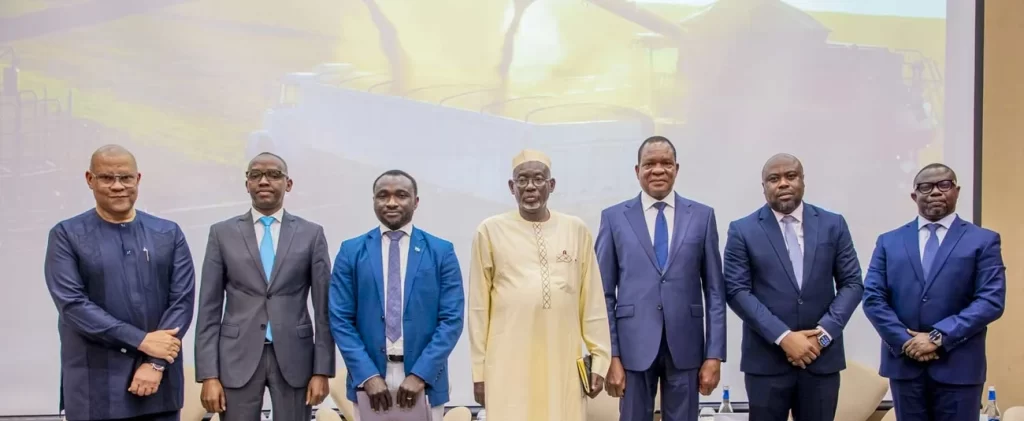Read in
The African Development Bank has urged greater financing of sustainable agricultural policies, practices and innovation. Bank officials made the call at three events hosted by the Bank on the sidelines of the Africa Food Systems Summit 2024 which was held in Kigali, Rwanda September 2-6 under the theme “Innovate, Accelerate and Scale: Delivering food systems transformation in a digital and climate era.”
The Summit brought together stakeholders from across the continent to discuss and advance solutions for transforming Africa’s food systems.
The three side events by the Bank, on Monday 2 September, focused respectively on Dakar 2 Summit updates, Fertilizer and Soil Health, and on facilitating dialogue and collaboration between the Bank’s Technologies for African Agricultural Transformation(link is external) (TAAT) and the Vision for Adapted Crops and Soils (VACS)(link is external), a joint initiative of the U.S. Department of State, the African Union, and the United Nations Food and Agriculture Organization.
The events, attended by representatives from government, development partners, and the private sector, were moderated by Dr Victor Oladokun, Senior Advisor to the Bank Group’s President for Communication and Stakeholder Engagement.
During the first panel, on the Dakar 2 Summit, Minister of Lands, Agriculture, Fisheries, Water and Rural Development of the Republic of Zimbabwe, Dr Anxious Jongwe Masuka, Dr Ildephonse Musafiri, Minister of Agriculture and Animal Resources, Rwanda, and Dr Henry Musa Kpaka, Ministry of Agriculture, Forestry and Food Security, Sierra Leone, shared their countries’ progress in the implementation of the summit’s Food and Agriculture Delivery Compacts.
At the second event, representatives of the African Fertilizer and Agribusiness Partnership (AFAP), AfreximBank, Mastercard, and the World Bank highlighted the key roles of the private sector and their various organizations in expanding digital access and financial inclusion to support farmers in the agriculture value chain.
In her intervention, Marie Claire Kalihangabo, Coordinator of the Africa Fertilizer Financing Mechanism, said: “Fertilizers and soil health have played a critical role in food security, economic growth and sustainable livelihoods for millions of people across the continent. The need to increase the financing of fertilizer manufacturing, distribution and appropriate use is more than urgent today.”
During the third session, panelists advocated the importance of aligning national and regional policies and strategies, mobilizing resources and technology, and fostering innovation ecosystems conducive to agricultural transformation. They also agreed that together the Technologies for African Agricultural Transformation and the Vision for Adapted Crops and Soils initiatives offer a comprehensive approach to addressing Africa’s food security challenges.
“I really want to appreciate this partnership of the VACS and TAAT. It is very critical to put technology in the hands of farmers. To advance this partnership, I am happy to announce that AGRA and the Forum for Agricultural Research in Africa have agreed to co-chair the platform of the VACS initiative. You can count on us!” said Dr. Agnes Matilda Kalibata, President of AGRA.
Philip Boahen, Lead Partnership and Coordination Officer in the African Development Bank’s Agriculture Department, representing Dr. Martin Fregene, Director of Agriculture and Agro-Industry, said, “We must continue to scale up the successes of TAAT, integrating these into our national and regional strategies and make sure that we incorporate digital agriculture, climate resilient technologies that will have to remain a central approach as we move forward. Our policies must also be inclusive.”
Alongside the three side events organized by the Bank, members of the delegation participated in different panel sessions, bilateral meetings and discussions. The Africa Food Systems Summit ended this year on a note of renewed political and policy commitments on food systems transformation on the continent.



